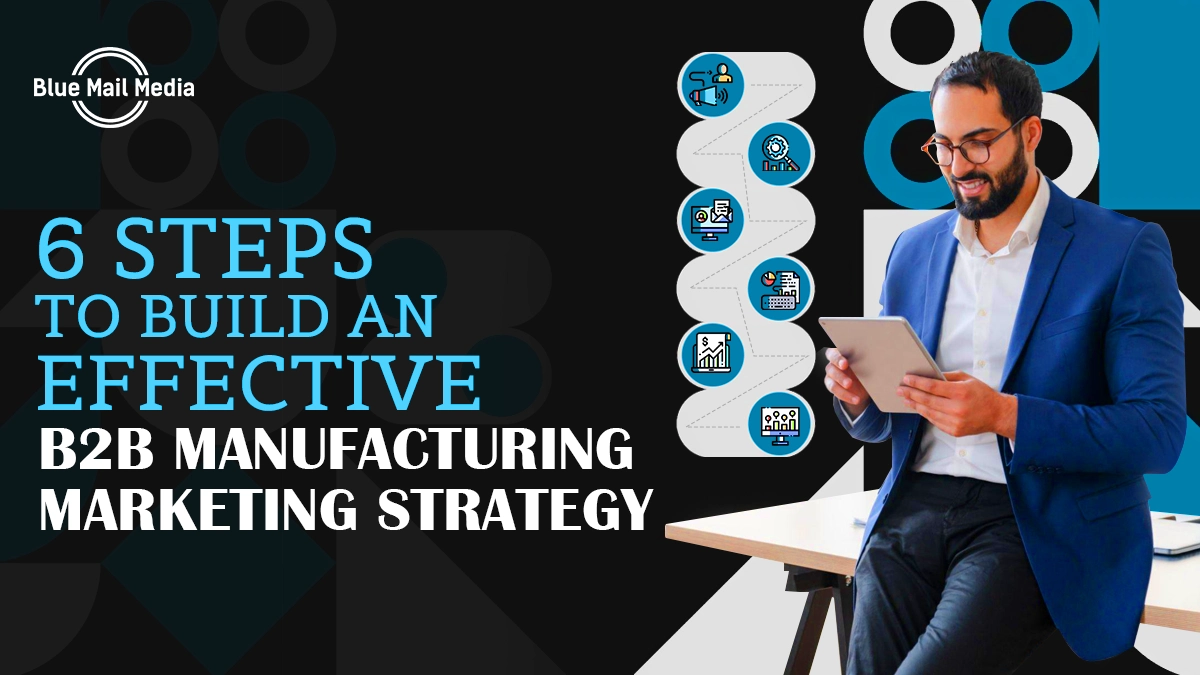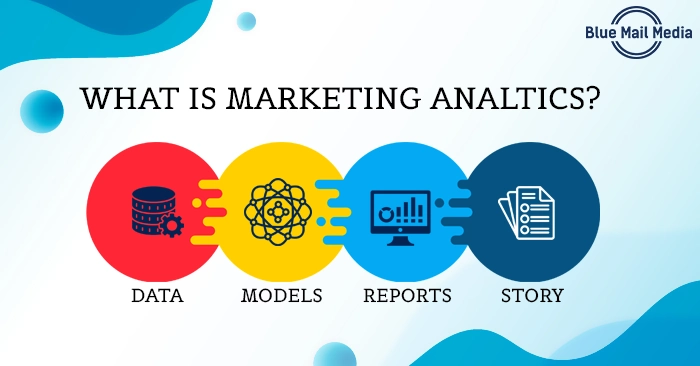As a manufacturing company, you need to stand out in the competitive domain. Your products can be similar to your competitors. So, a pertinent B2B manufacturing marketing strategy is now a mandatory asset.
At this time, two tactics are on top priority amongst B2B manufacturing companies — social media marketing and personalization. Both promotional channels received an equal share of 41% in a recent Statista survey.
However, a comprehensive B2B manufacturing company marketing strategy is a blend of hi-tech promotions and appropriate marketing conceptualization. You need to understand how manufacturing companies are competing on the offline and online fronts.
This blog aims to help marketers and businesses develop a tailor-made B2B marketing plan. Read on!
Existing Challenges in Formulating a B2B Manufacturing Marketing Strategy
Before understanding the tactics to implement, you must know the common pain points of modern B2B manufacturers. Explore this section to gauge the current issues
Investment Stakes are High
The manufacturing sector deals in high sums of money. You must be selling construction equipment or a big lot of clutch plates. Regardless of the volume, B2B buyers usually invest more money.
So, offering value and promoting your deal’s utility is a practical challenge.
There are Multiple Decision Makers
Unlike B2C, the business-to-business market involves several decision-makers. You need to promote your product’s functionality in front of the employees, manager, department head, and so on.
Hence, your B2B manufacturing marketing strategy must be robust and comprehensive and must address the concerns of every department.
The Product Search is Specific
B2B clients have well-defined priorities. For instance, let’s say you offer your products or services to the construction industry.
If so, then you might find prospects interested in your product, but some of them might have niche requirements that doesn’t match your specifications. So, finding the right niche target audience becomes necessary, ergo, having the right construction industry contacts.
All of this boils down to how specific the needs of B2B organizations are. The product search in the B2B market is quite constrictive, so you need to market to ideal prospects who can resolve their pain point completely with your offering.
The Sales Cycles are Long
Due to the presence of several decision-makers, the finalization of a deal takes time. For example, you cannot close a deal by merely using a retail executive mailing list. It is essential to cover all the stakeholders in your B2B manufacturing marketing strategy.
So, curating a multi-stage promotional strategy is a suitable solution.
How to Plan An Effective B2B Manufacturing Company Marketing Strategy
To attract key decision-makers, you should follow a methodical approach. These steps can help you plan a systematic brand promotion strategy.
1. Identify and set your goals accurately
The first step in any B2B manufacturing marketing plan is to describe your company’s objectives.
What market niche, for instance, do you want to focus on? Which of your goods function the best? Who are your rivals, and what tactics do they employ?
An effective approach will be established once the answers to these questions have been discovered.
A selection of lesser goals might be combined with one or two primary objectives. Make sure to include your primary indicators of performance for every objective so that you can track your progress monthly or yearly.
2. Have a better look into your target audience
“Know your audience” is one of the cornerstones of successful marketing. Your marketing approach will fail if you don’t know the audience you’re trying to reach.
As a result, be careful to develop thorough buyer personas, which are hypothetical depictions of your ideal clients based on statistics and market research.
Without a thorough understanding of your b2b intended audience, no marketing strategy will be effective. You can’t sell across the entire market, so concentrate on those you can ultimately benefit and influence.
3. Leverage the power of a targeted email marketing strategy
Email marketing comfortably takes the lead as the most effective marketing channel out there. In fact, a certain survey also implies that around 59% of the survey participants state that email marketing is key in bringing in higher revenue.
However, there are a few things you must keep in mind while leveraging email marketing strategies. Personalization is at the crux of an efficient email marketing campaign, and you should also keep the emails concise and conversational.
Doing this would definitely help the client understand your value proposition better, bringing in higher number of conversions.
4. Measure the results and keep tweaking strategy
Just because you have launched your marketing campaign, doesn’t mean it stops demanding work. A successful marketing campaign needs constant monitoring, and frequent tweaks to keep it from losing out to competition.
Once your marketing campaign successfully takes off, you need to keep an eye out for holes, and inaccuracies in the existing strategy. Only with constant tweaking and updating, your marketing campaign will continue to soar and bring in valuable conversions.
5. Emphasize Industry-Specific Content
Promoting your products or services to clients needs relevant content. Be it videos, long-form blogs, or articles, your B2B manufacturing company marketing strategy should have highly apposite content.
Here are some inclusions that can help market your products effectively:
- In-depth technical specifications
- Manufacturing news and happenings
- Information about the latest engineering trends
- eBooks and manufacturing trends
- How-to guides and case studies
This content helps promote your products and establishes your reputation as a reliable manufacturing firm. Thorough competitor analysis can offer more insights into creating this type of content.
Also, it is vital to experiment with different channels like text, videos, social media posts, and podcasts. Such marketing outlets apply to any type of business.
6. Capitalize on Advanced Marketing Analytics
Modern B2B manufacturing marketing strategy is no longer restricted to in-person meetings and product demonstrations. The digital arena offers your brand to connect with any potential lead, irrespective of location.
So, to calculate ROI and understand the impact of your promotional campaigns, it is vital to use robust analytic tools.
Here are some of the common assessments that you should conduct:
- Website marketing outreach
- Campaign analytics
- Social media traffic analysis
- Link analytics
There are several AI tools and software that will help you in this process. Notably, proper evaluation of these results will help modify your B2B manufacturing company marketing strategy.
This way, you can plan more effective campaigns and promote your products in a more enhanced way.
The Benefits of Channelized B2B Marketing in Manufacturing
If you implement and align all these tactics to your business model, the following benefits can become evident:
- You can attract new clients in buying your product or service
- Your brand can adapt quickly to new industry changes
- It can help you plan product output and features in a better way
- You can withstand tough B2B competition and aim for long-term sustainability
Overall, an effective B2B manufacturing marketing strategy can prove helpful on various fronts. In addition to improving sales, consistent promotions can augment your business to an international level.
Still, it is essential to proceed gradually. Stepwise implementation and capturing a well-defined audience base prove beneficial in the long run.
In a Nutshell
Your B2B manufacturing company marketing strategy should aim at addressing industry requirements and challenges. It is vital to use analytics and conduct thorough research to plan an effective promotional campaign.
Most manufacturing companies work on referrals and leverage industrial connections. However, in today’s age, you need to shift toward the digital domain as well. Leverage techniques such as accurate goal-setting, email marketing, advanced marketing analysis, and so on, to usher in more streams of revenue.
These strategies can augment your brand identity and help establish your company’s reputation. So, let’s say you sell kitchenware, and you contact some of the top-targeted restaurant owners. Post-initiating contact, these tactics will define your marketing campaign.
Ensure that you stay consistent with these tips. After all, you should aim for long-term results with your B2B manufacturing marketing strategy.







